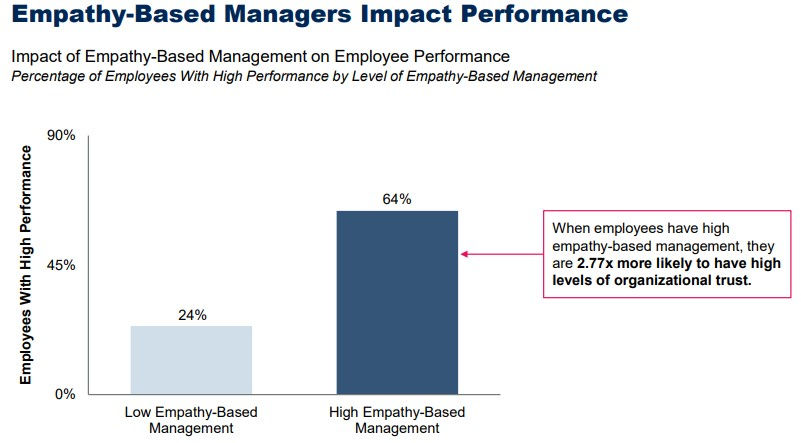Leading with empathy in 2022
- HR.Blogger
- Dec 23, 2021
- 4 min read
Hello, its been a while, a year in fact since my last blog. I haven't lost my interest in reading, researching and blogging, but life has happened and I lost my focus. Not only have I recently switched roles but my partner and I welcomed our third child - a beautiful little girl named Maggie. To say I am besotted would be an understatement!
With the end of year fast approaching I have started to plan ahead for next year and something which is high up on my agenda is switching our approach within my company to a Hybrid Working Model. We really wanted to seize the opportunity to rethink how we work and to catch up to the reality of the working world that we are in at the moment. Detaching ourselves from archaic assumptions on the what, where, when & how we work to be more focused on flexibility and autonomy - an approached centred around our employee needs.
This isn't a blog about hybrid working - I will save that for next time :-) This is a blog to highlight what I believe would be the most important management skill in 2022 - leading with empathy. Now I recognise that empathy may not a brand new skill, but it does have a increased level of significance. This is as a result of the pandemic (Covid again!) and how it changed what we expect from our leaders - a greater focus on support in areas like childcare, mental health and managing the blurred lines between personal and work lives. The relationship between leaders and employees is more supportive and emotional than I have ever seen it before.
Leading with empathy means understanding employees’ perspectives, taking into account the personal and professional needs of each team member and working to create a stronger and more inspired workforce.

When a leader can look at a team member and put themselves in their shoes, understand the pain and stress they are going through, and value their happiness above their own, they are genuinely empathetic.

Analysis provided by Gartner shows us that leaders who display high levels of empathy have three times the impact on their employees’ performance compared to those who display low levels of empathy.
In addition, employees at organisations with high levels of empathy-based leadership are more than twice as likely to agree that their work environment is inclusive.
So, if we know what empathy is and why it is so important, what is stopping us?
I mean, on the surface, expressing empathy seems like it should be common place, shouldn't it? Ultimately many see it as being a basic part of being human. Unfortunately in the workplace, it's not so common and this is generally as a result of empathy being lost in the struggle of managing pressure, workload and deadlines.
Looking at this in more detail, I can see there are generally three common barriers to leading with empathy;
Skill - empathy doesn't come naturally to that leader.
Mindset - not accepting they are responsible for supporting employee personal needs.
Capacity - they are overloaded and cannot find the time.
At its core, leadership is a relationship. It’s no secret that connection is a key leadership skill. If you can’t connect well, you can’t lead well. So lets us look at what makes an empathy-driven manager;
Prioritise people over process - people should be more valuable in a business than processes. Focus on being people-centric, allowing team members to create the best processes, rather than the other way around.
Embrace growth mindset - viewing mistakes as opportunities rather than failings is a much healthier approach to life and growth.
Create transparency - the most successful business relationships are collaborative endeavours built on a foundation of honesty, transparency and consistency.
Asks, doesn't tell - true empowerment comes from helping employees learn where to find or figure out what they need. When you provide a quick answer, you solve one problem. When you facilitate a discovery process, you create problem solvers!
Safeguards confidentiality - it is important that you provide your employees with a safe place for discussion, they should feel comfortable coming to you, therefore treat sensitive information with the upmost care and respect and laying the foundation for trust.
Understand employee mindset - become very clear about the importance of listening to employees, and understanding their needs, and being flexible to them.
Empathy in action is understanding an employee’s struggles and offering to help. As the popular saying goes, people may not remember what you say, but they will remember how you made them feel.
Leaders don’t have to be experts in mental health in order to demonstrate they care and are paying attention. It’s enough to check in, ask questions and take cues from the employee about how much they want to share.
Given it's new level of importance and the positive impact it can have on performance, I really do recommend that empathy is the leadership competency you should add to your development plan for 2022. It will certainly be on mine!
Thanks for taking the time to read my blog. Sending seasons greetings to you and your family. I hope you get to enjoy this special time with your loved ones!
See you soon,









댓글